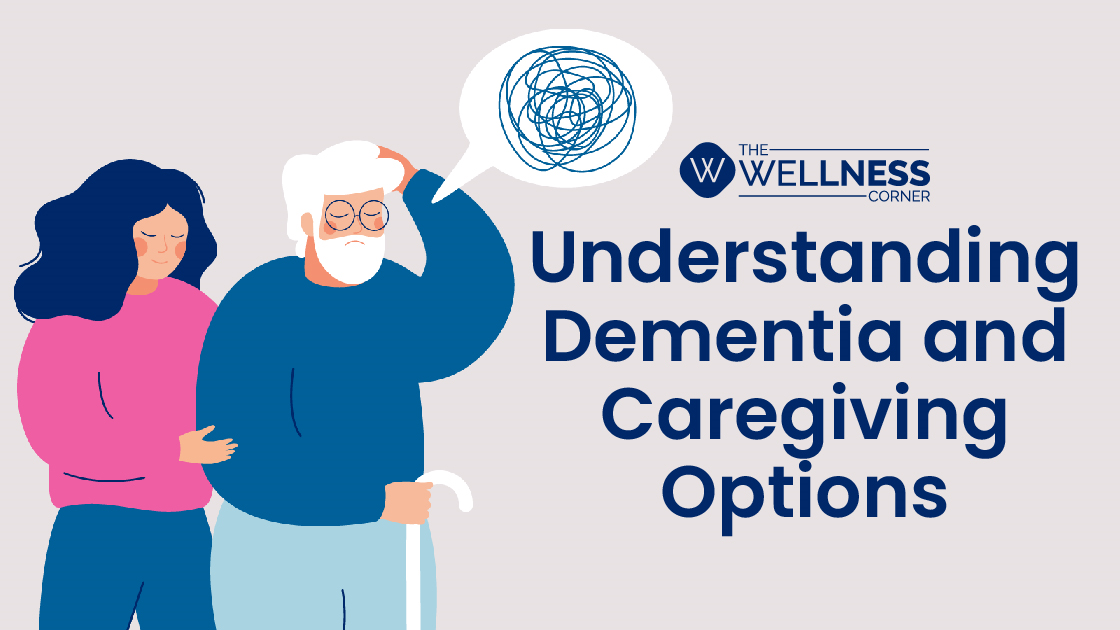Understanding Dementia
World Health Organization (WHO) states dementia as a group of conditions where the functionality of the brain (ability to process thoughts) starts diminishing earlier than expected aging. The initial stages of dementia may not seem to cause any major harm but it starts affecting memory, ability to think, behavior, decision-making power, and even small tasks like calculation. It often leads to low morale and sinks in emotional control.
Alzheimer is the most common dementia but there are many other types of dementia like mixed, frontotemporal, normal pressure hydrocephalus, etc.
Symptoms of Dementia
People with Dementia have the following common symptoms:
Providing Care to People with Dementia (PWD)
Providing care to someone with dementia can be challenging but it is definitely rewarding. The primary stages of dementia do not require much care but as the condition becomes severe, attention span needs to be increased and the person has to be monitored regularly.
Home care
If you are a caregiver or a family member helping a dementia patient at home (in the initial stage), please take care of the following-
Talk to the health care provider
Start by getting clarity about the severity of the patient’s condition and how you can help the person stay calm and occupied. After that, talk to the person directly and see how you can make everyday tasks like grooming simpler.
Help with memory loss
Encourage fun activities like exercising, and puzzle games that help them with their memory in an enjoyable way. Also, walking with a caregiver regularly can help them re-focus on their communication & reduce mind-wandering.
Ensure proper sleep pattern
Make sure that they sleep well. Proper sleep will help them retain what they have done throughout the day and link it with past memories.
A good diet is important
Did you know that eating certain foods can help with memory issues? Try to include healthy fruits and vegetables, whole grains, and lean meat in their diet. Consult a dietitian on The Wellness Corner for a proper meal plan for dementia patients.
Long-term care
Many patients require more care than usual if the condition of the patient worsens or they live alone. As such, they’ll require full-time care which the family members may not be able to provide due to time or other constraints like work, studies, or traveling.
Thankfully there are special long-term dementia care services that provide different levels of care and program for dementia patients. Here are a few-
Assisted-living
If the patient needs support with day-to-day activities and personal care, it will be best to go for this program. It includes basic services like cleaning, cooking, and laundry services, and assisting personal needs like grooming, and dressing.
Residential care
It generally includes retirement homes and is suitable for those with low levels of Dementia who have the ability to take care of themselves but need supervision or someone who lives alone. They offer services like laundry, meals, cleaning, and some help with personal needs.
Nursing facilities
When someone needs care for up to 24 hours a day and long-term medical treatment, a good nursing home will take care of almost all needs, such as planning daily activities, social activities, diet, medical care, and other support.
Specialized dementia care
People who have severe dementia complicated by inappropriate behaviors need special attention. Special dementia care programs focus on the needs of people with such dementia. They have special care units, trained professionals, a particular structure, and significant activities based on the person’s severity and requirements.
Bottom line
According to studies, the needs of people with dementia should not be ignored. With the probable increase of dementia in the coming years, it is critical that we understand the needs of people with dementia (PWD) and provide appropriate care. External help can simplify your loved one’s life and ease the emotional and physical burdens of caregiving. Proper treatments can improve patient’s quality of life and control dementia. Consult a doctor on The Wellness Corner for medical support.
